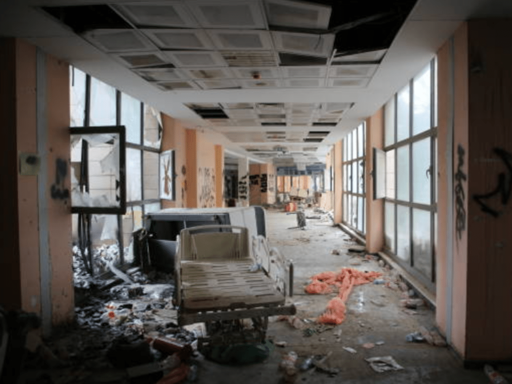In besieged Gaza thousands of cancer patients live in a state of deadly limbo as local hospitals are unable to meet their needs. Israel’s blockade prevents them from travelling abroad for treatment amid the collapse of the health system, which has been directly targeted by the occupation during two years of war and destruction.
The Ministry of Health in the Strip indicates that 5,000 cancer patients, including children and adults, are in urgent need of treatment outside the Strip. Many remain torn between hope for treatment and a slow death caused by a lack of medicine.
Gaza cancer patients suffering exacerbated by Israel
Hospitals in Gaza suffer from a severe shortage of essential medicines and medical supplies, making surgeries, chemotherapy and radiotherapy intermittent and with uncertain outcomes. Dr. Reem, an oncologist, told the Canary:
We work with minimal resources and try to save lives every day, but reality limits us. Many die before they can receive treatment outside Gaza.’ These words reflect the tragedy of thousands of families who see their loved ones suffering without being able to intervene effectively.
The suffering of cancer patients in Gaza is not just a set of numbers in the Ministry of Health’s reports. Instead, it is a daily pain that permeates every aspect of life.
Samir’s mother, aged 50, sits on an iron bed in a hospital that is almost completely out of medicine, holding a useless medical file in her hands. In a faint voice, she told us:
Every time it’s my turn for treatment, they tell me the medicine hasn’t arrived yet.
She then looks down the long corridor as if waiting for life from behind a closed crossing.
In the same ward, eight-year-old Aser lies smiling despite the pain. His father describes his daily journey between hospitals, saying:
We no longer ask for a cure, we only ask that he not suffer more.
Chemotherapy sessions have become a distant dream, held hostage by the occupation’s refusal to issue crossing permits and leave trucks stuck at crossings.
Indescribable pain
Children are the most affected, with 20% of those under the age of five suffering from severe malnutrition. Such deprivation increases the difficulty of treatment and doubles the likelihood of death. Some children suffer from months of delayed treatment due to the bureaucratic procedures for obtaining travel permits, which stand between the hope of recovery and the deadly reality.
The psychological pressure on patients and their families is immense. The daily struggle between physical pain and a lack of financial and psychological resources creates feelings of frustration and helplessness. Um Muhammad, a mother of two children with cancer, told the Canary:
I try to smile in front of them, but inside I am constantly afraid. Sometimes I don’t even have the money for transport to get to the hospital.
Testimonies such as these reveal the scale of the humanitarian crisis, which exceeds the capacity of the health sector to cope.
International and local humanitarian efforts are limited, and their resources are insufficient to cover all cases. Some organisations provide limited medication and treatment, but demand far exceeds supply. Such a desperate scenario makes urgent intervention in the form of grants and treatment permits outside the sector vital.
Spiralling impact
The health crisis has far-reaching repercussions on society, affecting education, employment and family stability. Families with a sick member struggle to meet their daily needs, which increases the cycle of poverty and dependence on humanitarian aid.
In light of this crisis, the vital role of the government and international organisations in pressing for the facilitation of treatment permits and the provision of vital medicines is highlighted, along with the need to provide psychological support programmes for children and adults living under the burden of ongoing illness.
The battle against cancer in Gaza is not only a medical battle, but also an ongoing humanitarian struggle between life and death, between the hope of treatment and the grim reality of the blockade and lack of resources. It is a painful picture of one of the most prominent humanitarian challenges in the region, which requires urgent action from the international community to support the lives of thousands of patients and their families.
Here, illness becomes a waiting game, medicine a wishful dream, and life hangs in the balance between political decisions and a blockade that shows no mercy to the body or to hope.
Featured image via the Canary
By Alaa Shamali
From Canary via this RSS feed


